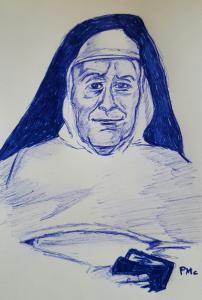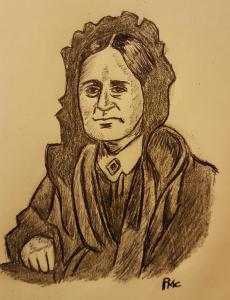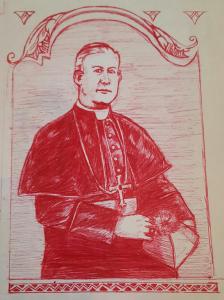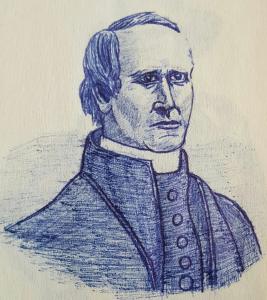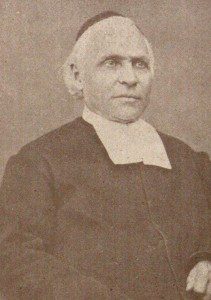 Brother Stylien, F.S.C. (1808-1880)
Brother Stylien, F.S.C. (1808-1880)
Born in France, in 1808, Brother Stylien (L.A. Lissignol, 1808-1880) entered the Institute of the Brothers of the Christian Schools while still in his fifteenth year. He was received into the novitiate at Avignon in September, 1823. Two years later he began his teaching career in Marseilles, and five years afterward he was sent to the piedmont region of Italy to open a school. He spent a year in Turin and some months in Rome, perfecting himself in Italian. In October, 1832, he taught at Orvieto, then at Spoleto, and finally returned to Rome in 1836 for a period of four years. After nearly ten years in Italy he was recalled to France and appointed Assistant Director of the boarding school at Peguy. Three times in the course of his fifty-seven years as a Christian Brother he was assigned to this community. In all, he spent twenty-four years there.
In 1846, at the age of forty and just about to celebrate his silver jubilee as a Brother, he was selected by Brother Philippe to take charge of the community to be established in New York. He held this position in Canal Street for five years. In 1853 he purchased property at 132nd Street and Broadway and erected the Academy of the Holy Infancy, which ten years later was chartered as Manhattan College.
Impaired in health and wearied of the burden of directing schools (ten of them were opened alone in New York City during the first ten years), Brother Stylien was recalled to France in 1861, after spending thirteen years in the United States. Because of his knowledge of English, he was assigned to London. He was later transferred to St. Omer, where he taught until 1864.
Returning to Passy, he organized courses in Italian, Spanish and English. He was particularly interested in backward pupils and coached them in their studies, and also was placed in charge of the many foreign students who came to Passy to learn French. He was most sympathetic, gentle and understanding in lessening their pangs of homesickness, in directing their correspondence with their parents, in assisting them in their studies and in helping them to acquire the manners and customs of France.
Advancing years did not cause Brother Stylien to relax in his zeal for the things of the spirit. His lively faith prompted him to direct catechism classes for students of foreign birth. He prepared these young men for the reception of the sacraments, and led them each week to parishes throughout the city to make their confession to priests acquainted with their language.
As a teacher, Brother Stylien was devotedly interested in his pupils; as Director of the community he was charitable and thoughtful in dealing with the members of his religious family. His sojourn in Rome had given him a particular love for religious services. He retained many happy memories of solemn ceremonies in the Holy City and accordingly endeavored to have all the prescriptions of the liturgy scrupulously observed. He died on Good Friday morning, March 26th, 1880, in the seventy-second year of his age and the fifty-seventh year of his religious life, and was buried at Passy.
Brother Angelus Gabriel, F.S.C., The Christian Brothers in the United States, 1848-1948: A Century of Catholic Education (New York: Declan X. McMullen, 1948), 106-107.


